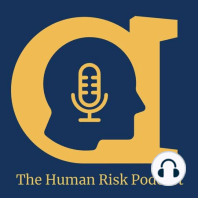22 min listen

Professor Elizabeth Stokoe on The Science of Conversations
Professor Elizabeth Stokoe on The Science of Conversations
ratings:
Length:
62 minutes
Released:
Feb 15, 2021
Format:
Podcast episode
Description
Conversations are a key part of how we communicate - but how do they actually work & what might go wrong? That's what my guest on this episode, Professor Elizabeth Stokoe, helps me to understand in...a conversation! Liz is the Professor of Social Interaction at Loughborough University in the UK. Her research analyses conversations in a wide range of settings. In our discussion, we explore some of the findings of her studies, how she came to specialise in the subject and her thoughts on COVID. Unsurprisingly, given her discipline, Liz is engaging, insightful and entertaining. To learn more about Liz's research, visit her faculty website ?https://www.lboro.ac.uk/subjects/communication-media/staff/elizabeth-stokoe/To find Liz on Twitter ? https://twitter.com/LizStokoeYou can watch Liz's TED Talk ? here ? https://www.youtube.com/watch?v=MtOG5PK8xDATo learn more about her book ?Talk: The Science of Conversation ? https://www.hachette.co.uk/titles/elizabeth-stokoe/talk/9781472140845/
Released:
Feb 15, 2021
Format:
Podcast episode
Titles in the series (100)
Human Risk Webinar Recording: The Ethics of Events during a Pandemic: In this impromptu episode, Richard Bistrong, Ruth Steinholtz and I discuss the Ethics of holding an in-person event at the time of a pandemic. The discussion arose because the three of us were due to attend an Ethics Conference together next month.... by The Human Risk Podcast